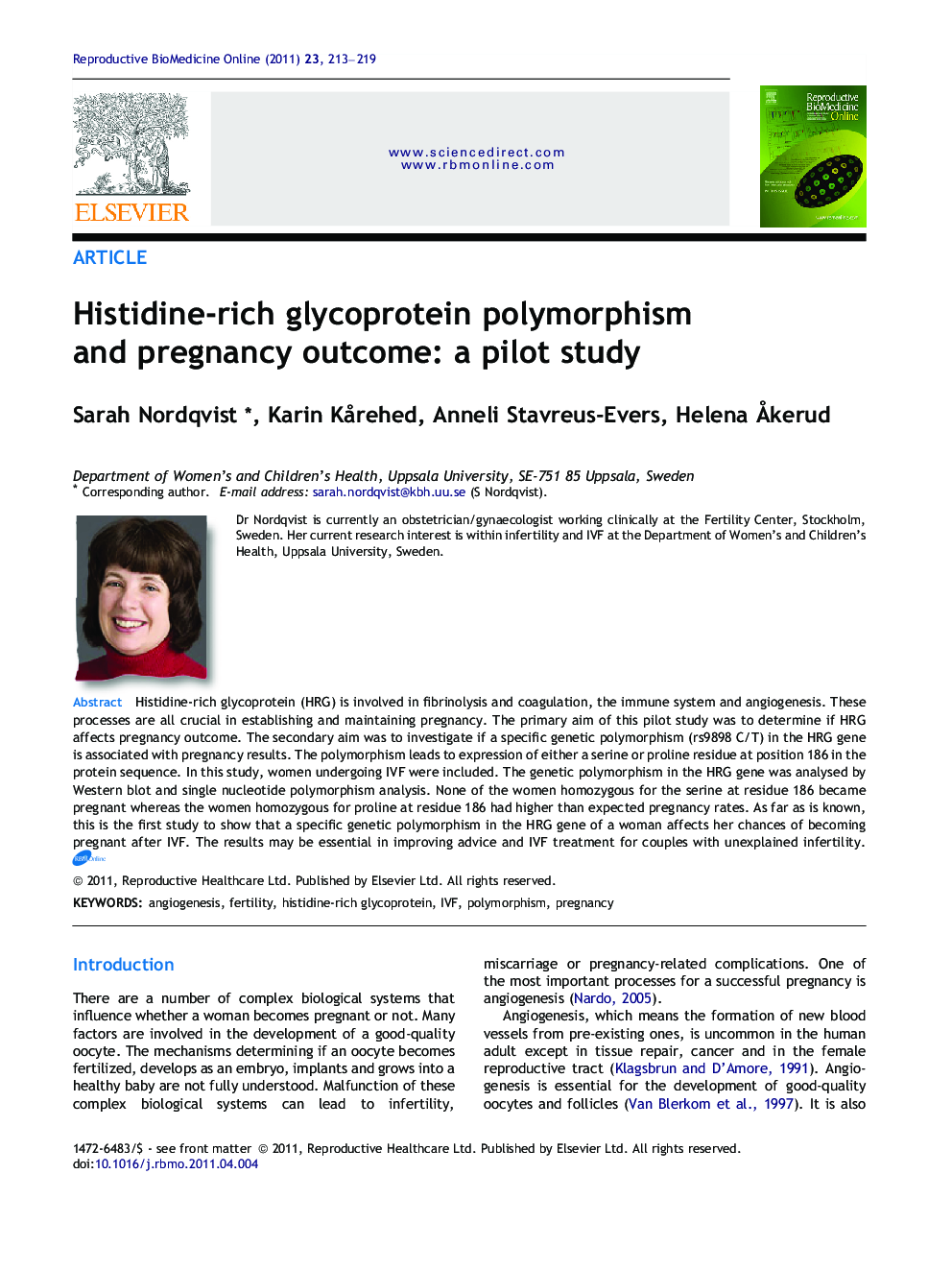| Article ID | Journal | Published Year | Pages | File Type |
|---|---|---|---|---|
| 6189212 | Reproductive BioMedicine Online | 2011 | 7 Pages |
Abstract
We have found a new test which might potentially improve advice and treatment for infertile couples considering IVF treatment. Histidine-rich glycoprotein (HRG) is involved in the system preventing blood clots or excess bleeding, the immune system and the system regulating blood vessel formation. Tight regulation of these processes is necessary for a pregnancy to be successful. This study examines how a specific genetic variant of HRG can affect pregnancy rates after IVF. The genetic polymorphism leads to expression of two different protein variations. One variation has a serine amino acid attached at position 186 and the other variation has a proline amino acid attached at the same position. Which variation a women produces is inherited co-dominantly. In this study, women undergoing IVF were included. To determine which variation each woman had, two different methods were used: Western blot and single nucleotide polymorphism analysis. The experimental results were then related to the woman's medical records. None of the women who only produced the variation of HRG with a serine attached became pregnant, whereas the women who produced only the proline variation had higher than expected pregnancy rates. We show for the first time that the genetic background of a woman may affect her chances of becoming pregnant after IVF. The results might be essential in improving advice and IVF treatment for infertile couples.
Related Topics
Health Sciences
Medicine and Dentistry
Obstetrics, Gynecology and Women's Health
Authors
Sarah Nordqvist, Karin KÃ¥rehed, Anneli Stavreus-Evers, Helena Ã
kerud,
